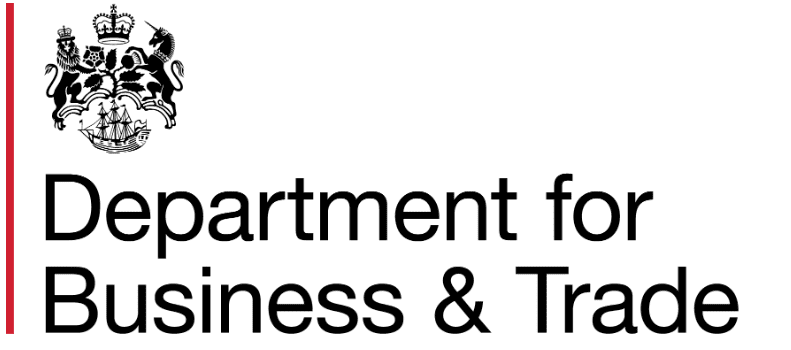Time for an IP Audit
Published by Parminder Lally, Appleyard Lees — 27 April 2023
In this piece, Appleyard Lees partner and patent attorney Parminder Lally discusses why protecting innovation and brand assets should be a priority for technology-based businesses, and offers valuable insight into how they might go about managing and expanding their IP portfolios.
Parminder joins our Perspectives: Investing in Women session as Chair on Tuesday 9th May, sponsored by Appleyard Lees.

—
Cambridge Tech Week will be showcasing lots of the exciting and diverse tech businesses in the area, and hopes to bring knowledge, insight and experience together to fuel innovation.
One thing many of these businesses have in common is that are based on cutting-edge scientific and technological developments. Another thing that some of these businesses have in common is that they spend time protecting those cutting-edge developments, to secure their market position and ensure financial return on commercially successful innovations.
Intellectual property (IP) rights can be acquired for these scientific and technological developments, and these rights can provide businesses with greater negotiating power when collaborating with other companies. IP rights can help businesses to attract investment partners and support business expansion, as they demonstrate that a company has a high level of technical expertise.

Whether your tech business is a start-up or spin-out, an SME or a multinational, it can be valuable to conduct regular IP audits to check that the technology at the heart of your business is adequately protected. In this article, we provide some tips on actions you can take to get the most out of the IP system for your business.
Tip #1: Set and share your IP budget
Whether or not April marks the start of a new financial year for your business, it is a great time to determine what your IP goals are and the budget you’ll need to enable you meet those goals.
For example, some companies may want to build-up their IP portfolio to attract investment or to improve their negotiating power with acquirers or collaborators.
For some pre-revenue companies, this may mean doing more with limited resources. It’s a good idea to speak to your trusted patent or trade mark attorneys and explain your IP goals to them and your budget. We want to help you to meet your IP goals, and we can work with you to put together an IP strategy for the year that meets your IP goals and budget expectations. Many attorneys are willing to negotiate on costs, or agree on costs for the specific IP actions you want to take in the year, so there are no surprises.
For UK-based start-ups and SMEs, we can also help you to obtain and make use of the IP Audit and IP Access grants (i.e. free money!) that are available from the UK Intellectual Property Office.
Another way to save money or spend less on IP this year is by asking your IP attorney whether there is any way to delay costs. Some patent deadlines, for example, can be extended for little cost.
Tip #2: Grow what you have already protected
Perhaps you have focused on protecting your ‘core’ innovation up until now. Maybe you have one patent application or patent family for this ‘core’ innovation – think of this as your house. It may be time to put up some extra (de)fences around your house to defend against competitors designing around your core innovation. Your fences could be patent applications for improvements to the core innovation or may relate to techniques for achieving or implementing the core innovation, for example.
Your fences need not be more patent applications – you could make use of other types of IP rights, such as confidentiality agreements, trade marks, database rights, and so on. We can advise on how to build your IP portfolio in a way that suits your needs and budget.
Tip #3: Get organised
Companies – especially start-ups and spin-outs – should spend some time organising their IP documents and internal IP systems.
For instance, companies can check whether there are IP clauses in employee contracts, ensure any contractors or founders have signed agreements to assign their rights to the company, review confidentiality agreements and NDAs to ensure they still cover what they are needed to cover.
Perhaps implement an invention harvesting system, or provide employees with invention disclosure forms to complete whenever they think they have developed something new and useful. Set-up IP training sessions for new and existing employees.
These are all things your trusted patent attorney could help with.
Tip #4: Expand your IP portfolio
Companies could take a look at their IP portfolio and determine whether it could be expanded to cover new, different types of IP or new, different parts of the business.
For example, sometimes companies focus on protecting their hardware but even though they also develop software, do not think about protecting their software. Similarly, some companies may have protected their innovation but not their brand. Techbio companies may have spent time on protecting the tech side but not the bio side, or vice versa.
For start-ups and scale-ups, it could now be the right time to undertake other, new types of IP activity, such as a freedom to operate analysis or a competitor analysis. These activities may not have been conducted earlier because of cost constraints, for example, but could be useful to perform now if a company is closer to launching a product.
Tip #5: Check whether your IP portfolio still suits your business
Companies of all types should take a regular look at their IP portfolios and determine whether they are still fit for purpose.
Whether you file one patent application a year or dozens, it can be a useful exercise to review the portfolio and check whether the applications are still valuable to your business. Your patent attorney can help you with this analysis. We can help you to determine whether there’s anything in your existing IP portfolio that can be safely removed, to avoid costs without losing any important protection.
For instance, it is often the case for start-ups, SMEs and corporations alike that their IP portfolios will contain some patent applications for inventions that are no longer of interest. This is perhaps because they were ‘blue sky’ innovations, or an improved/different version of the invention has been developed and protected since, or because the company has pivoted since the application was filed. In this case, if any of the patent applications are no longer commercially relevant to the business, then the company could consider withdrawing or abandoning the applications to avoid incurring further costs on something that does not add value, or selling or licensing the applications to gain income.
If you would like advice on how to protect your innovations or would like help auditing your IP portfolio, please get in touch. Patent and trade mark attorneys from Appleyard Lees will be attending events throughout Cambridge Tech Week so you can find us then, but you can also email us to arrange a free and confidential chat: parminder.lally@appleyardlees.com & ip@appleyardlees.com.
















































